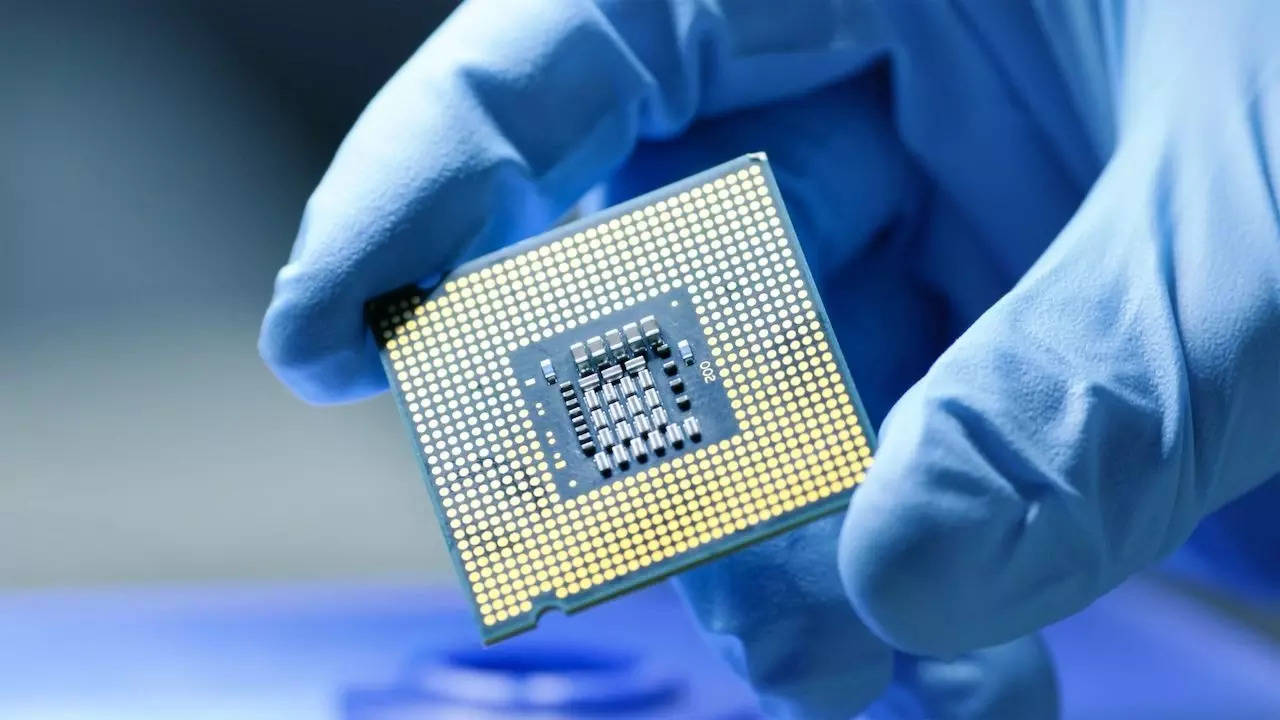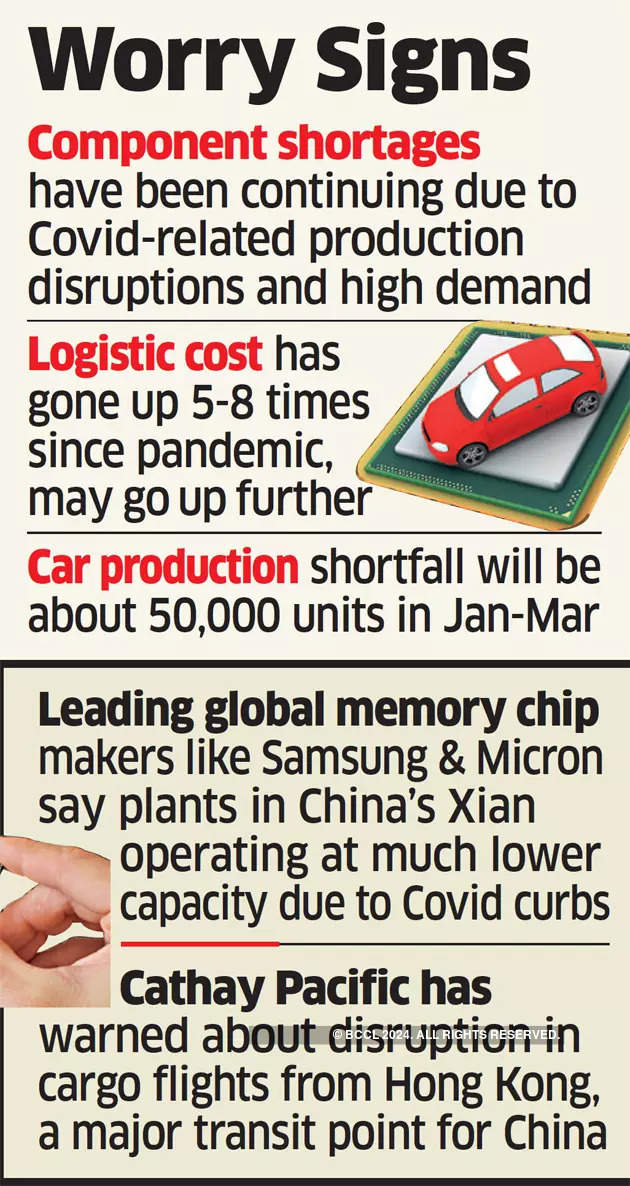
An increase in Covid-19 cases globally and a fresh round of restrictions imposed in China and Hong Kong have started to worsen an already fractured supply chain of components, senior executives at several electronics and automobile companies said.
Indications from vendors and logistic companies are for further disruptions in the January-March quarter, and that could also push up the cost of sourcing components and transportation, they said. While some have stepped up sourcing ahead of any further impact on the supply chain, manufacturers are concerned about the emerging situation as they are already battling a severe shortage of components including semiconductors that has forced them to limit production despite strong demand for automobiles and electronic products.
‘Impact may Linger beyond March Quarter’
Bosch Siemens India managing director Neeraj Bahl said its headquarters had flagged the appliances maker of severe disruption in supplies for the January-March quarter, cost escalation and the possibility of the impact on the supply chain to be worse than during the previous waves of the pandemic. “In fact, the impact could be felt in the subsequent quarter, too,” he said.
Contract manufacturer Dixon Technologies’ chairman Sunil Vachani also expects an impact, but hopes it to be a short term considering the example of a shorter peak of the Omicron wave in South Africa. “The saving grace is that the coming months are not the peak sales period and hence manufacturing will not run at full capacity,” he said.
Automotive forecasting firm IHS Markit estimates the worsening supply situation to result in a production loss of about 50,000 light vehicles in India in the March quarter.
The rise in Omicron cases around the world may further disrupt the global supply chain, IHS Markit associate director Gaurav Vangaal said. He expects the semiconductor supply situation to stabilise in the first quarter of 2022, but the lead time to be 26 weeks or longer. “Longer firm order windows will not guarantee that the supply chain can meet quantities or schedules,” he added.
Component shortages had resulted in lost production of half a million light vehicles in 2021, according to IHS Markit.
Leading global memory chip makers like Samsung and Micron Technology have said that their plants in China’s Xian were operating at much lower capacity due to lockdown restrictions.
Several cities are also putting strict compulsory quarantine for airline and vessel crew, impacting turnaround time.
Cathay Pacific has warned about disruption in cargo flights from Hong Kong, including major cuts in its flight schedule, after the local administration announced strict Covid-19 quarantine rules for air cargo crew last week to curb Omicron cases. Hong Kong is a major transit point for China with manufacturing hub Shenzhen in proximity and the move will worsen supply woes.
Meanwhile, Automotive Component Manufacturers Association president Sunjay Kapur said business plans have already been built considering different kinds of scenarios, including the ongoing chip shortage and logistics issues.
“The companies will do the same with regard to the surge in infections due to the Omicron variant of the novel coronavirus. The recent shutdowns in major automotive markets and sourcing bases in Europe coincide with the Christmas holidays for which companies were prepared, so the impact could be lower,” he said in a recent conference.
Some companies had stepped up component sourcing from December after the World Health Organization first alerted about the Omicron variant.
Godrej Appliances business head Kamal Nandi said companies that had stepped up sourcing will be safer in the March quarter, though there could be some challenges in the next quarter.
Godrej Appliances, as well as air-conditioner contract manufacturer Amber Enterprises, Thomson and Kodak are among companies that have already stepped up sourcing of parts.















